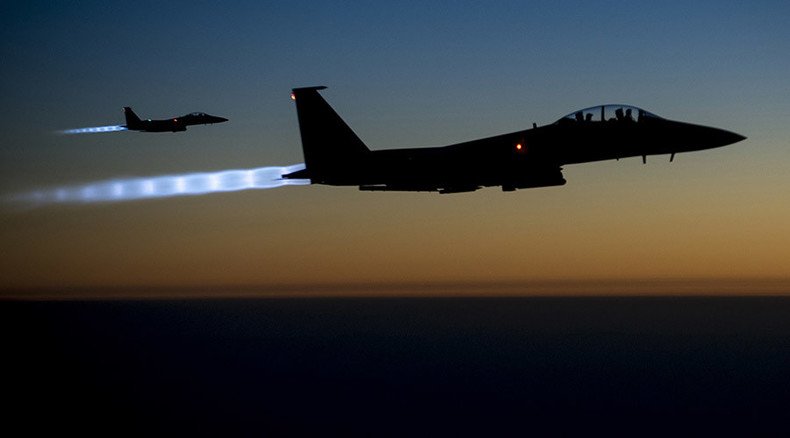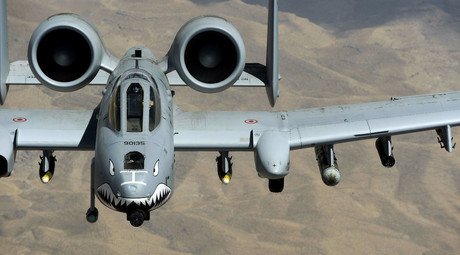Pentagon relaxes rules for battling ISIS

Secretary of Defense Ash Carter said that the Pentagon is prepared to give US troops more leeway in fighting against Islamic State militants. Lawmakers have been calling the existing rules of engagement too restrictive for several months.
"If you look at the data, the thing that most enhances the impact of the air campaign is better and better intelligence.” Carter said on MSNBC's Morning Joe show. “We're prepared to change the rules of engagement."
The defense secretary noted that the US-led coalition is has recently been engaging different types of ISIS targets.
"We've changed tactics, as we just did in the case of the fuel trucks," he said.
Earlier this week, airstrikes conducted by the United States have destroyed at least 116 trucks used by Islamic State to smuggle crude oil in Syria. The move was lauded as a success, and its effectiveness was attributed to better intelligence and a greater willingness to inflict damage on Syrian infrastructure.
Previously, targets would be damaged and not destroyed, in order to leave Syria with oil production capabilities after the defeat of Islamic State (IS, formerly ISIS/ISIL).
"The oil infrastructure is something that the civilian population benefits from, as well," Carter said.
The Pentagon had previously justified the current rules of engagement as necessarily strict to keep civilian casualties low. IS militants often hide in public places that would lead to significant collateral damage if hit by an airstrike.
READ MORE: Who’s in Control? Obama or the generals?
The Obama administration has come under heavy fire for the policy, with critics calling the rules too restrictive, noting the majority of US-led coalition aircraft return from their missions without dropping a single bomb.
Senator Tom Cotton (R-Arkansas) said that the tight rules of engagement are one of the first things service members ask him about when he visits overseas.
"They want to know in most countries if we're committed to victory," he told the Washington Examiner. "In Iraq against the Islamic State, in Afghanistan against the Taliban and Al-Qaeda and now the Islamic State as well, and had some real reservations about the constraints put on their freedom of action in fighting the bad guys."
USS Harry Truman deployed to strike #ISIS in wake of #ParisAttackshttps://t.co/0UKgjVgPbypic.twitter.com/4MdMbzd26p
— RT America (@RT_America) November 17, 2015
Pressure to ratchet up the effort against IS increased due to Friday’s terrorist attack in Paris, France that left at least 129 dead. President Obama spoke about the need to defeat IS in the wake of the attacks on Monday, but he did not specifically address the restrictions on military action.
Russia was on the receiving end of its own terrorist attack last month, when IS destroyed a Russian charter jet with a bomb, killing all 224 people on board. In the wake of this attack and the one in Paris, Russia and France have forged a new alliance that was announce on Tuesday. The two countries are sharply intensifying their attacks on IS, with France carrying out a massive bombing campaign of an IS headquarters and Russia “doubling” the number of sorties being carried out, according to Russian Defense Minister Sergey Shoigu.













